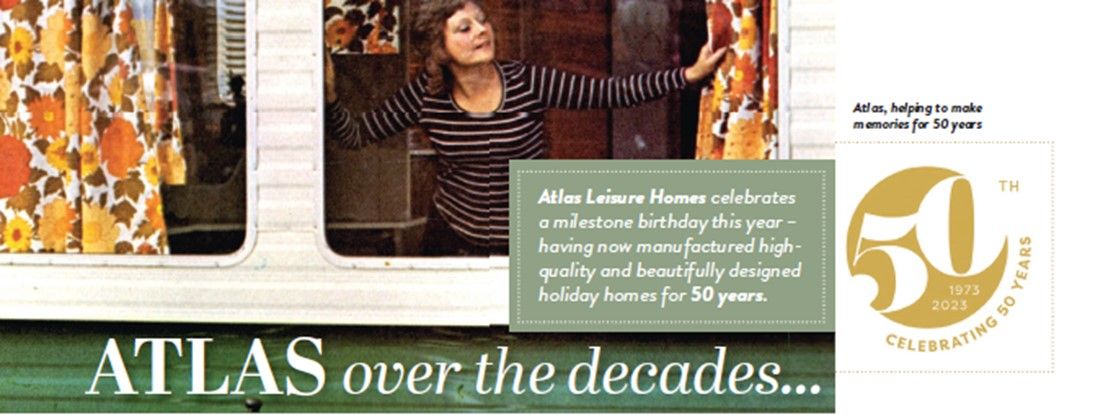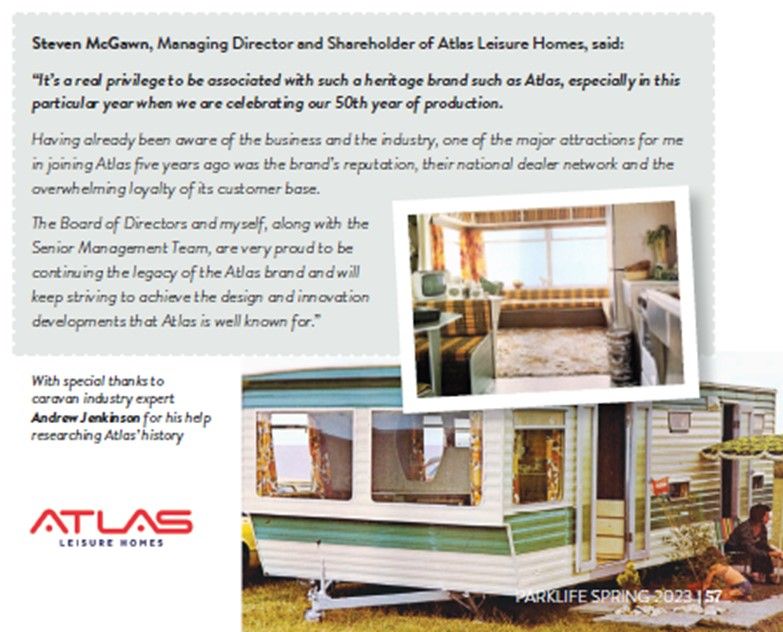
Based across two sites in Hull, a city the business calls home, today Atlas employs a 500-strong workforce of mainly local people.
During the mid 1960s, the Hull area became a growing area for caravan production as the boom for holidays grew.
On 3rd April 1973, Atlas Caravan Company was founded. Through the years, many things have changed and evolved, but the Atlas name has always remained. Atlas was just starting out during the economic turmoil of the 1970s, amid a period of high inflation, oil prices, and strike action. With its first home in a disused fish warehouse, the business began mainly manufacturing for export customers.
The business soon became notable for its distinctive designs, and throughout the 1970s kept up to date with the latest caravan technology – adding in heating systems and de-luxe models to their ranges.
Despite continued economic challenges throughout the 1980s, the company’s innovative ranges would help keep demand for their holiday homes buoyant. Atlas saw its sales reach new heights as more dealers took on the brand.
The Hull factory was working flat out, and with parks now becoming better equipped with mains water/electrics, the Atlas models were being manufactured to new standards, o¥ering the customer more home comforts.
Now a market leader, the 1990s would see Atlas produce more lavish interiors that echoed that of the domestic market trends. Attending all the major shows and events, the Atlas name was now a top choice in a highly competitive market.
The Atlas holiday home was easy to spot on parks because of the businesses approach to keeping its designs di¥erent from the rest of those on the market. The 2000s would see more changes to designs, with more up-market interiors and pitched roofs.
Despite new challenges due to the economic climate, Atlas kept consistently updating and improving to keep potential buyers interested in upgrading to a new Atlas model, such as unique heating systems, double glazing and insulation.
This decade also saw Atlas introduce lodges. Its new products were soon seen as market leaders, with their interior design and exterior profile incorporating the latest trends in domestic living.
After the financial crash of 2008/09, the business continued to manufacture new models and ranges but on a smaller scale than in the previous years. However, the power of the brand endured and Atlas continued to grow again from 2010 onwards.
With Covid-19 recently a¥ecting foreign travel, Atlas saw the demand for its holiday homes and lodges reach new sales records in the 2020s. Due to additional demand, the decision was made to set up a second production plant at nearby Sutton Fields Industrial Estate, allowing extra capacity.
By sticking to the principles of quality design, keeping up to date with consumer wants and needs, and with the support of a dedicated workforce, Atlas is now one of the longest-producing holiday caravan manufacturers in Europe.

RELATED ARTICLES - advice and support caravan industry news
Published on 28 June 2023 By Jenny Blumsom